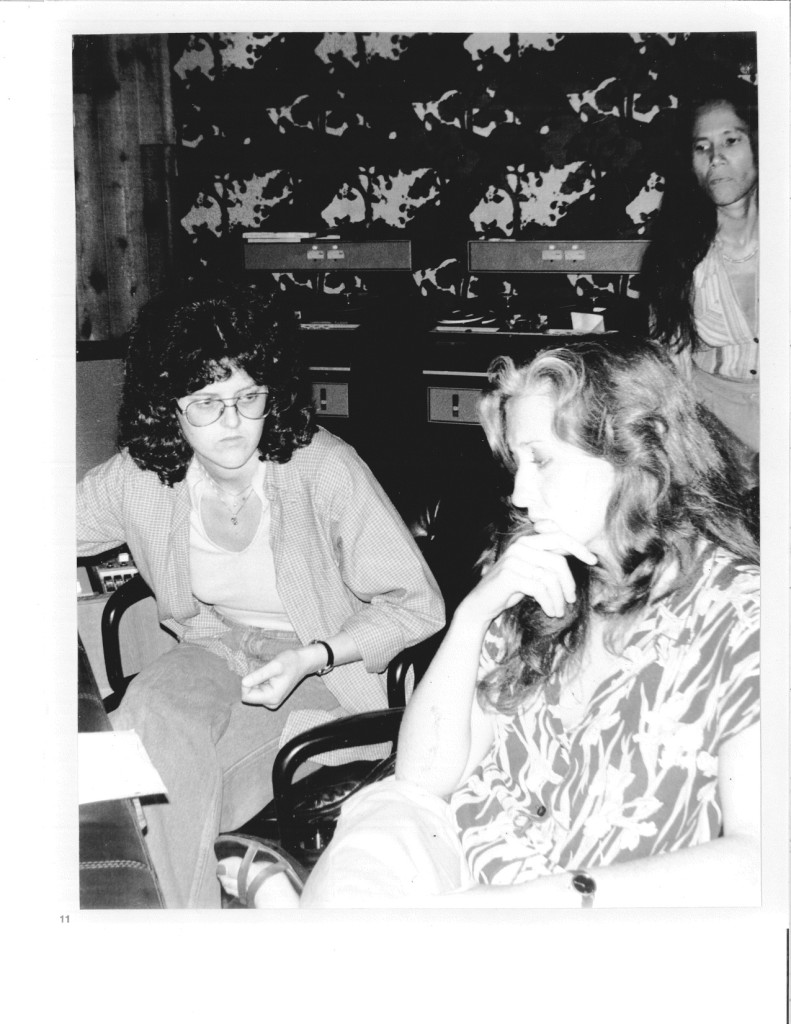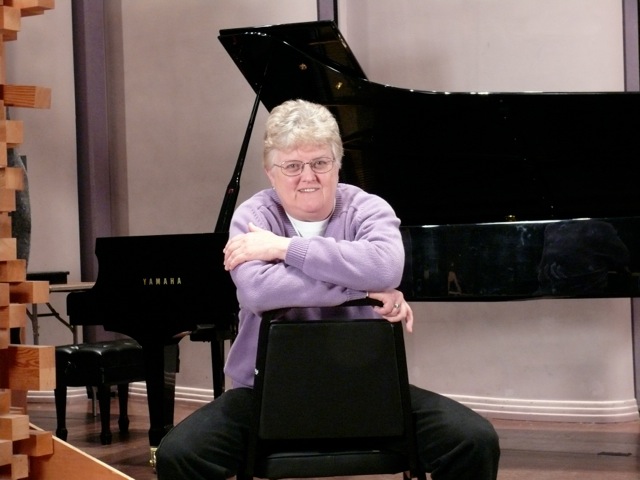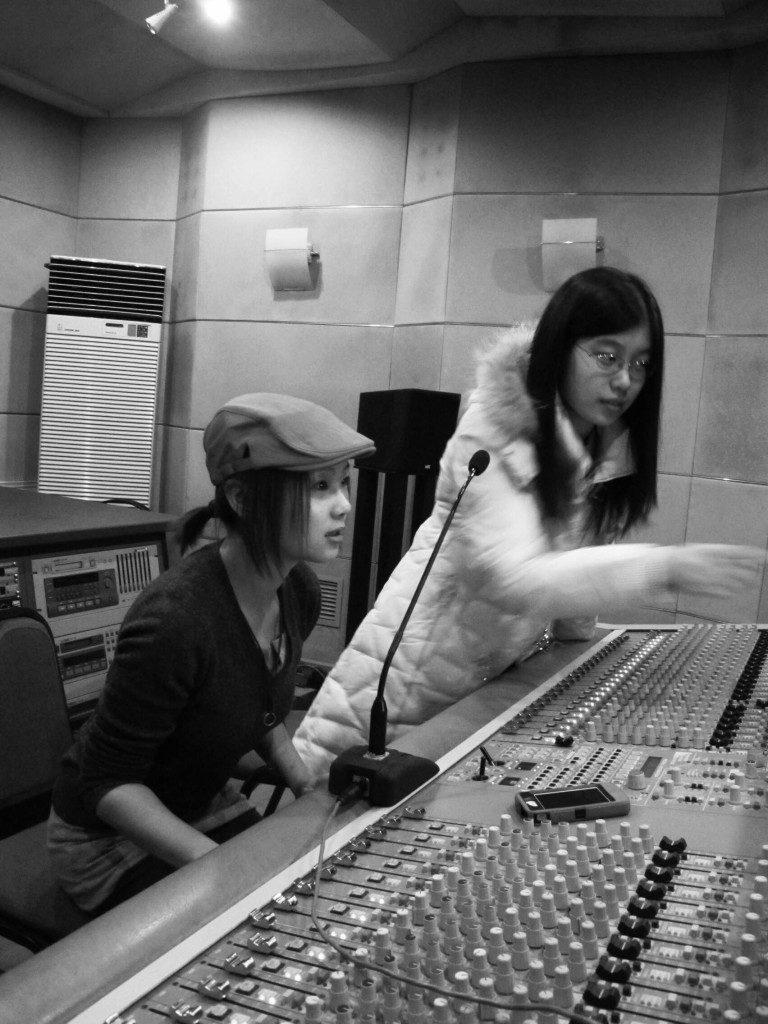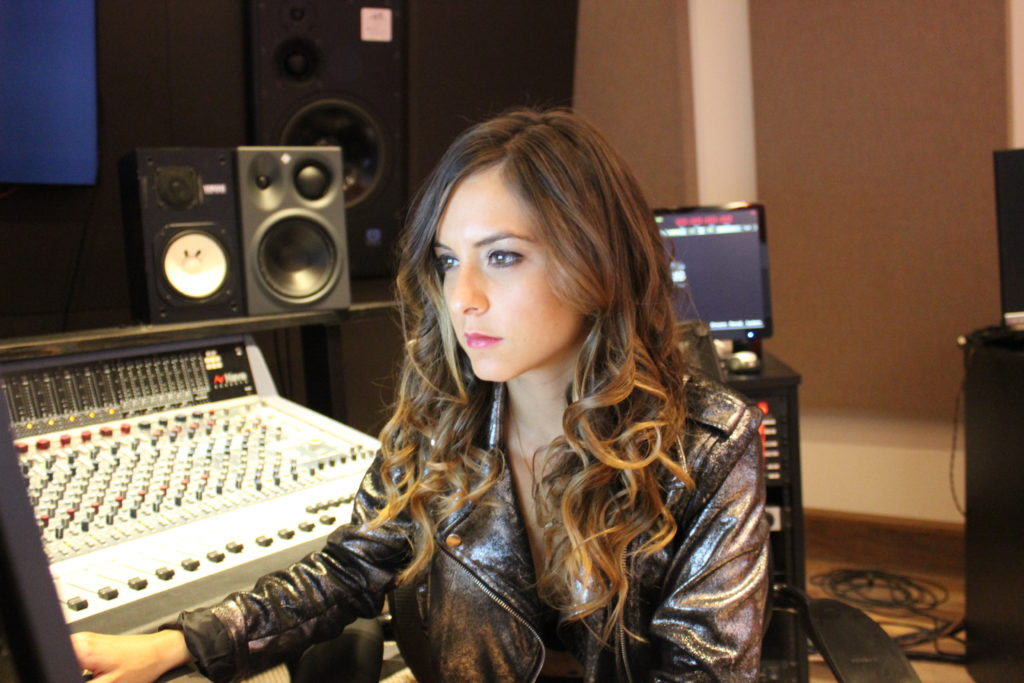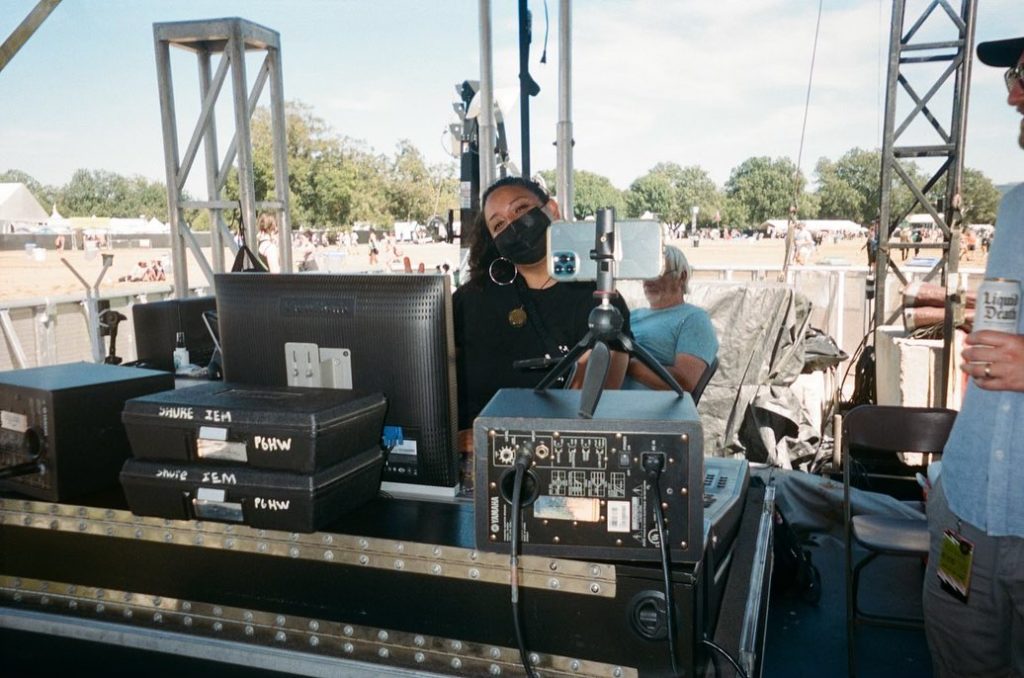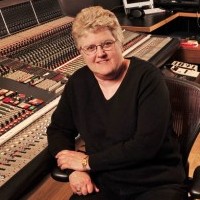 Don’t be afraid to raise your hand
Don’t be afraid to raise your hand
Women can sometimes hold themselves back out of fear of failure, whereas men will generally jump at opportunities to take on something new even if they’ve never done it before. It’s often a challenge for us to overcome the feeling of needing to be proficient at something before agreeing to take it on. Leslie recognized this herself in the early days of her career. “Wanting to be of service as an assistant and yet trying to be ready so when the moment came to be thrown into the fire, even though I might be nervous, to just do it was challenging. And yet to this day, that is what molded me. My curiosity, my willingness to try different things, to step out of my comfort zone on purpose.”
“To tell you the truth I NEVER really felt comfortable and secure. I always felt like there was so much I didn’t know, and so much I needed to learn. Even before I became a professional, when I would walk into Hi-fi stores or instrument stores and ask questions, it was really to try and get a better grasp of terms. When I worked at Capitol Studios, we started doing more film and TV scores. But the method of working and the language was so different that I ended up taking a film sound class just to get more comfortable with the vocabulary and the work-flow. So for me, it never stops. I guess deep down now I am secure in knowing I will figure it out. Every step of the way I learn more. I still ask questions, even of my contemporaries.” Leslie adds that for women to push past their comfort zone and take the necessary risks to advance in their careers, “The most important thing is to raise your hand, say yes, and then find a mentor or someone you can tap into to help you along the way. At ABC I was so fortunate to feel like everyone there, from the tech staff to the engineers to the artists had a vested interest in my success. But you have to be open to that.”
Leslie has taken on many challenging projects because she does raise her hand and say yes. Recently she took on a live project called “The Hidden World of Girls.” “I was asked to do it by Laura Karpman, an Emmy-winning composer and client, and friend of mine. She composed the music for the Cabrillo Music Festival in Santa Cruz centered around The Kitchen Sisters. They (Davia Nelson and Nikki Silva) had a radio show where they asked girls to call in and leave a message about their “hidden world,” things about them others didn’t know. They were fascinating stories, and a whole full-length performance was built around those voice recordings, Laura’s music, and the music of 3 other women composers, all conducted by Marin Alsop and the Cabrillo Orchestra. And to add to the challenge, it was being performed where that festival is always performed, in a civic auditorium that also gets used for things like basketball games. I decided to mix it in surround. My assistant and trusty sidekick Dann Thompson and I brought a whole pro tools system and played all the voices off that. It all had to be timed perfectly like an old radio show. In fact, that is what I wanted the audience to experience…to close their eyes and be transported to these different worlds. There were a lot of masters, err mistresses to please. Laura, of course, asked me to do it because of my orchestra experience, I have known and admired Davia and Nikki for a long time, and then there was Marin and the orchestra. Nothing was done to a click, so that made it even more challenging. But she is a great conductor. It all took care of itself.”
Having started in this business when women audio engineers were extremely rare, their number still has not increased greatly over the past 40 years. The answer to why this is difficult, but Leslie offers two ideas: One being that girls need to be given the tools they need while they are in middle and high school. “ Girls tend to be more concerned at that age with peer pressure, boyfriends and puberty. They need to be supported for their convictions and their tenacity and regarded for raising their hand first, regardless of the consequences. That is why organizations like Girls, Inc., and The Institute for the Musical Arts are so important. They build confidence.” And again, having the courage to take risks and seize opportunities when they arise, “. I think it is still a big leap to go from being a great assistant to having all the responsibility for running the session. I saw it as a means to an end. I could still be involved in the creative aspect of making music but in a different way.”
For those who are interested in getting into the business, Leslie feels that an education in the recording arts is essential for anyone looking for a career as a recording engineer. Equally as important though, is the creative part of the job which cannot be taught in school. Especially for those wishing to become producers. “Being a producer and what the job entails has so much to do with what the artist needs. There are very few multi-room studios now where one can get experience working on different projects, different genres, and alongside different engineers.”
Leslie has seen many engineers come and go and notes an important trait shared by the most successful engineers and producers is, “not getting upset. If there is a problem, just deal with it and keep the session going and the artist happy. I recently participated on a panel at AES in New York titled “What Would Ramone Do?”. It was a tribute to Phil Ramone, the producer and engineer legend. Al Schmitt told a great story about Phil; that if there was ever a problem in the studio, like a technical problem, he would just go out into the studio and start rehearsing with the band, or call for a dinner break and buy some time, all without letting on what was happening. When things were ok, they’d swing back into the session, and no one was the wiser.
Setting yourself apart from the competition is key to getting the job, and as with anything it takes more than technical skill. “Still to this day I remain impressed by people that will do whatever it takes to get the job done. Extending themselves, showing up, asking questions, staying after school. That hasn’t changed. What has changed is this entitlement some younger kids feel that means they don’t have to do any of that. Communication skills, writing (yes penmanship), being of service, all of those will make you stand out. Find something you are great at and make the most of it.” “To paraphrase a famous character, there is no thinking, only doing.”
Leslie Ann Jones has certainly done…a lot.
“You really have to walk in every day ready to make music, no matter what that entails.” “Making records is a creative process, and that needs to be the focus. Remember what I said about Roy Hallee having all his tools in place? Then he could go ahead and be creative. Making records, making music is about joy and having fun. Our job is to make sure that happens.”
Leslie’s list of clients, projects, and accomplishments over the years has been extensive, and she says the diversity has helped her longevity in the business. Helping artists and composers fulfill their aspirations, and being able to do that in a facility that honors the creative work that helps make that happen, is one of the most enjoyable parts of Leslie’s job. Working at Skywalker Sound, she says she’s had the pleasure of working with some of the most creative and talented people she’s known.
Like most women, Leslie finds it challenging to have a career and a life at the same time. “Both are very important to me as one feeds the other. That balance continues to be challenging, and I think it is harder as a woman than as a man. I don’t have children, but I have watched many of my contemporaries have families and children. Unfortunately, we live in a society where it is still seen as the woman’s main responsibility for parenting, even when the Dads are great parents and our work is quite time-consuming. “ But when asked if she could imagine herself having chosen another career path Leslie replies, “I can’t imagine having chosen something else. I have a great career, exciting, challenging and fulfilling. I am surrounded by music all the time. I get to work with incredibly talented and creative people. Well, perhaps a little more time to make my 2nd wine would be appreciated.” : -)

